Rescuing one of the rarest animals in the world Ploughshare Tortoise rehomed to Chester Zoo, UK
(Hong Kong – 29 December 2021) A critically endangered Ploughshare Tortoise (Astrochelys yniphora) has been successfully sent from Kadoorie Farm and Botanic Garden (KFBG), Hong Kong, to a new home with the Chester Zoo in the UK, this December. One of the rarest animals on Earth, with likely fewer than 100 remaining in the wild, this Ploughshare Tortoise was part of a consignment of 57 tortoises of two species confiscated by HKSAR Customs at Hong Kong International Airport. Following seizure in September 2019, the tortoise was placed under the care of KFBG Wild Animal Rescue Centre.
Ploughshare Tortoises are sold at exceptionally high prices on the black market as there is a high demand for this scarce animal in the pet trade. Following its rescue in Hong Kong, this fortunate tortoise – thought to be a female – has now joined an important European conservation programme for the species.
“The Ploughshare Tortoise is settling into its new home in the UK and hopefully will produce offspring in future and eventually contribute to the wild survival of the species, which is presently under severe threat,” said Dr. Gary Ades, Head of the Fauna Conservation Department of KFBG. The resettlement of this Ploughshare Tortoise marks a success for KFBG’s wild animal rescue work in supporting efforts to combat the illegal wildlife trade.
 |
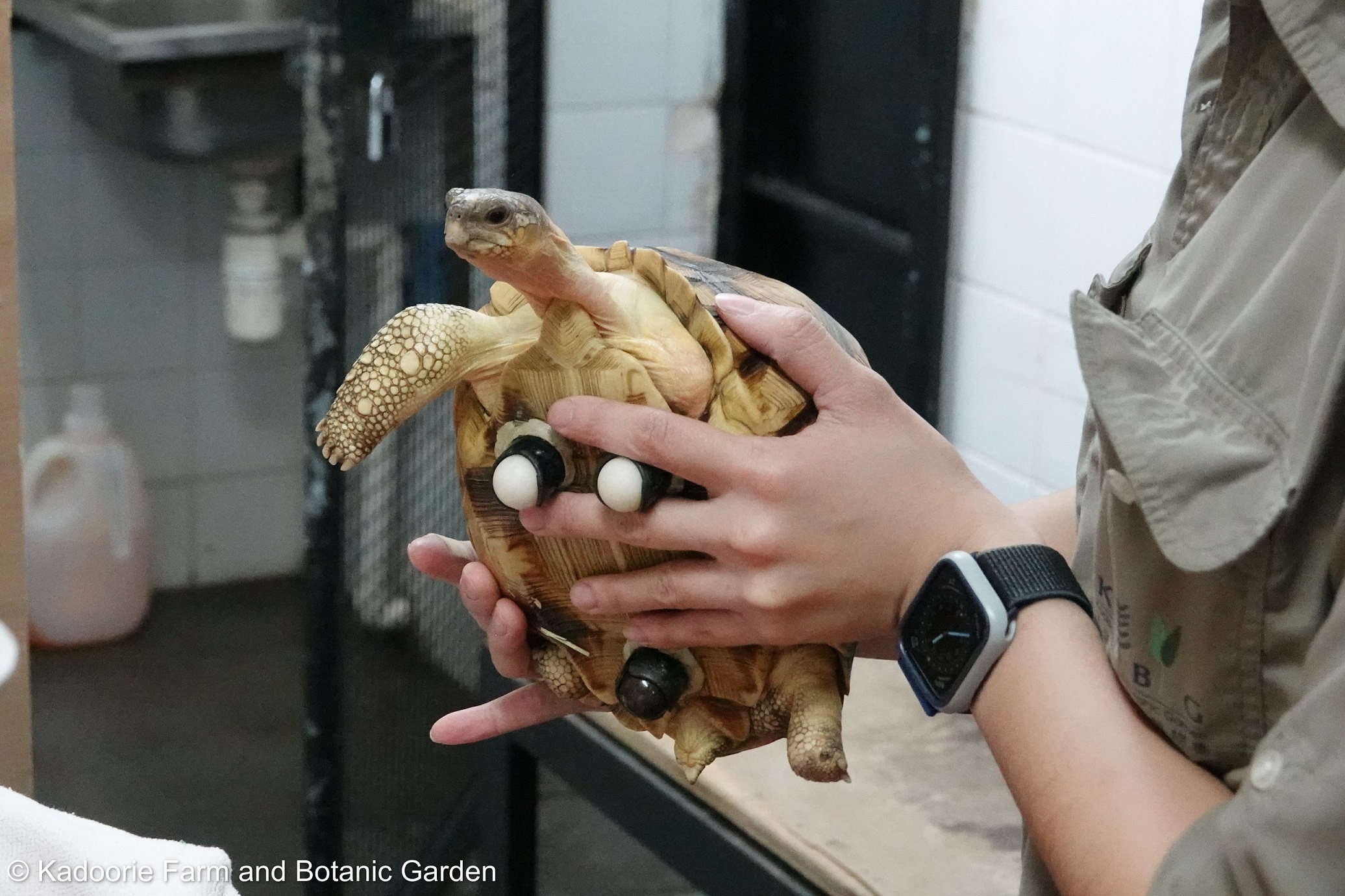 |
| When KFBG received this tortoise in 2019, its front left leg and some claws on the hind left leg were missing. This may have been due to a birth defect or injury when very young. Three support rollers have been attached under its lower shell or plastron to assist in balance and walking. | |

Ploughshare Tortoises can only be found in a small part of Madagascar. It is listed under Appendix I (the highest protection category) of the Convention on International Trade in Endangered Species (CITES), prohibiting all forms of international commercial trade.
The rarity of the Ploughshare Tortoise has attracted reptile collectors and poachers to illegally harvest the species to the point of near extinction. From the “Turtles in Trouble 2018” report, there are likely fewer than 100 animals remaining in the wild. As far as we can determine, there are only 29 Ploughshare tortoises legally outside of Madagascar in conservation programmes. Ploughshare tortoises are listed as critically endangered by the International Union for the Conservation of Nature (IUCN).
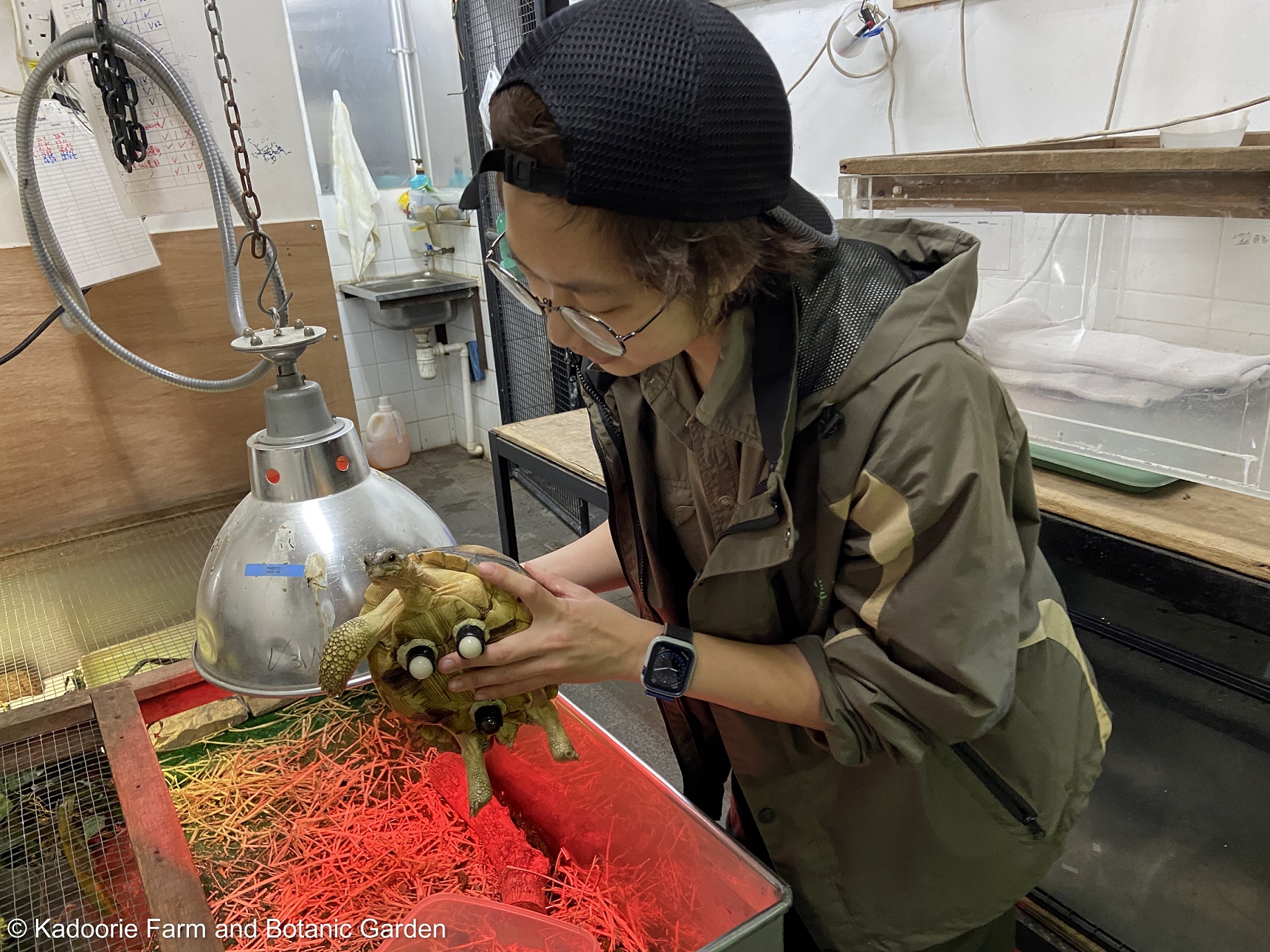 |
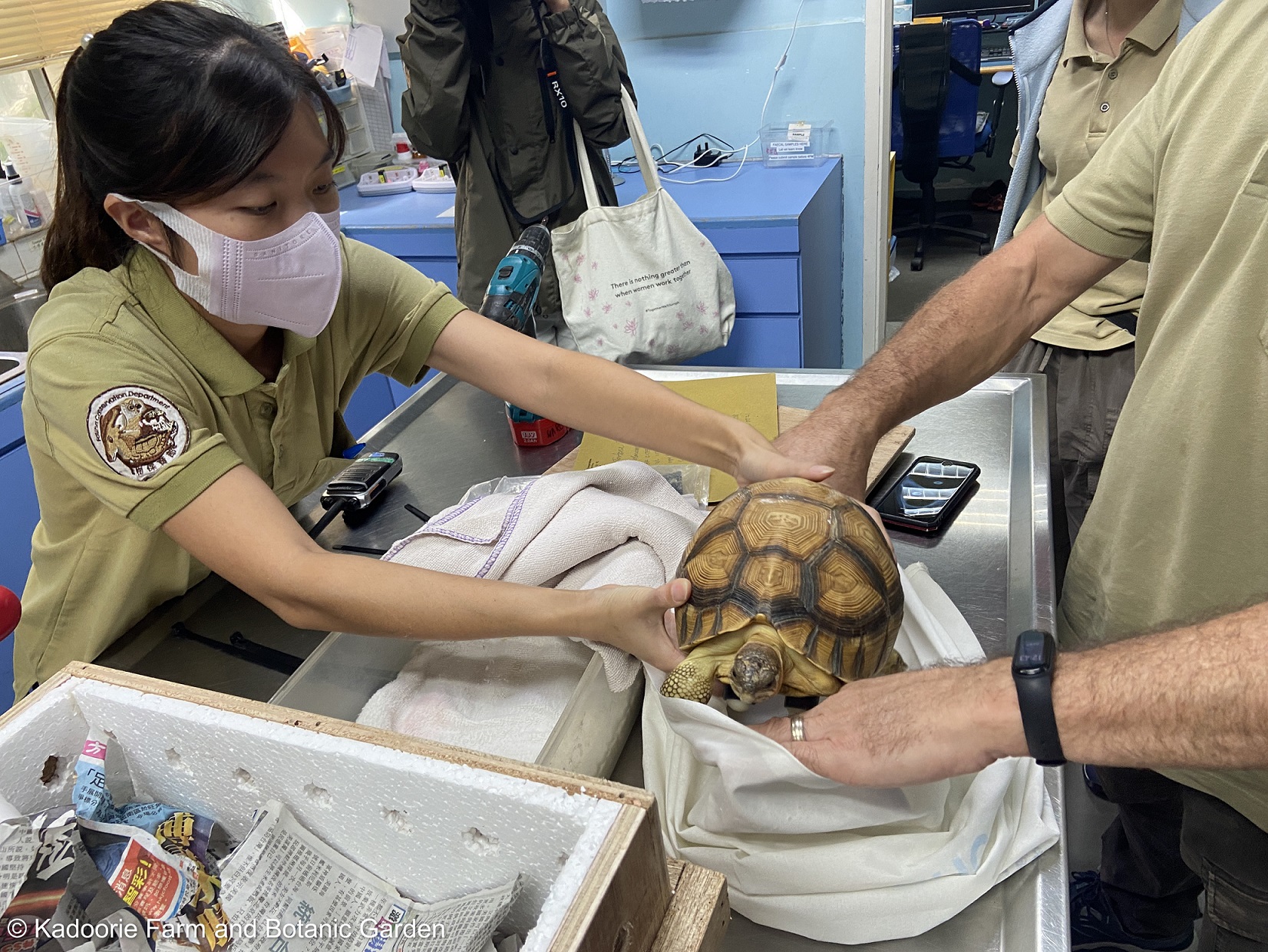 |
| The KFBG rescue team cared for the tortoise for over two years. We carefully packed it into a cloth bag then placed it into a customized wooden crate for maximum safety during the long journey. We are happy that it could find a suitable, permanent home in the UK. There are several other tortoises in the Rescue Centre of KFBG waiting for permanent placements in a conservation programmes overseas. | |
 |
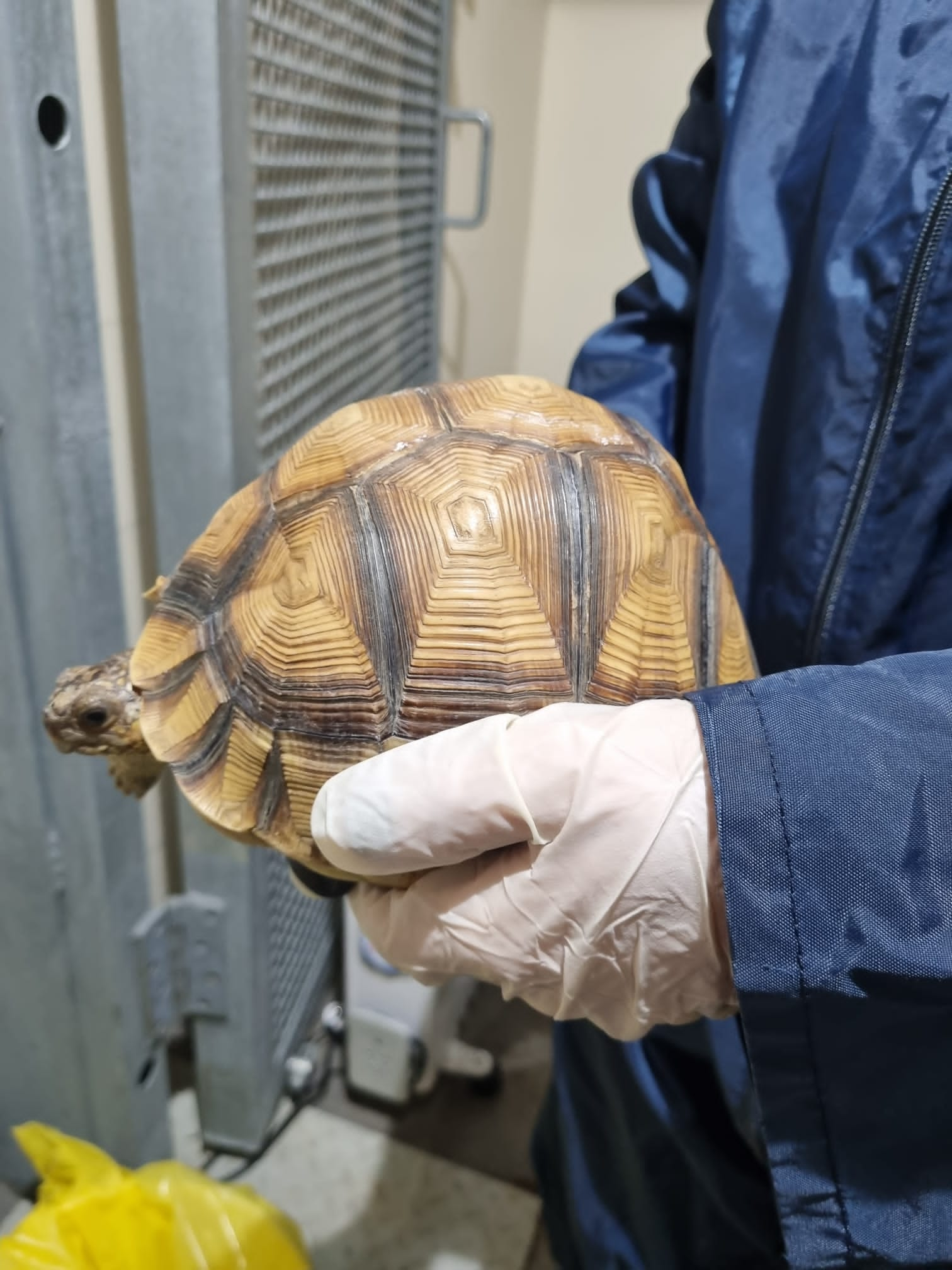 |
|
The Ploughshare Tortoise arrived at Chester Zoo looking fit and healthy. Photo Credit: Chester Zoo |
|
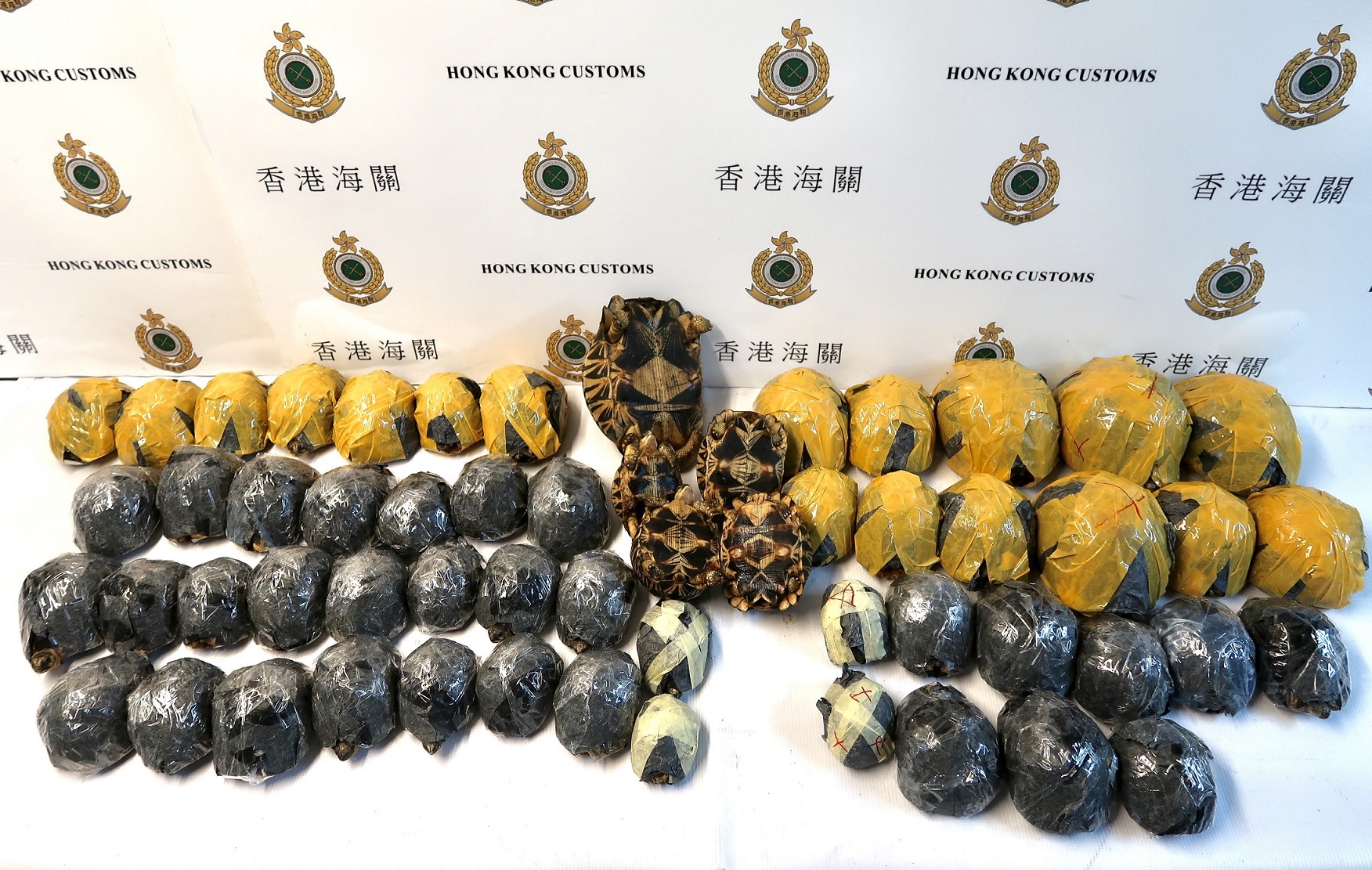
In October 2019, a smuggler secreted 57 live, critically endangered Madagascan tortoises inside his check-in suitcase. They were illegally smuggled out of the Comoro Islands off the East African coast. The HKSAR Customs and Excise Department seized the consignment and transferred them to the Agriculture, Fisheries and Conservation Department, they were then passed to our Wild Animal Rescue Centre for temporary captive care (Government press release).
What you can do
Please do not support illegal wildlife trade. You can help save this species and others by not buying protected tortoises and by reporting any suspected illegal wildlife trade activities to the Agriculture, Fisheries and Conservation Department at 2150 6978. For further information the KFBG hotline can be reached at 2483 7200 / fauna@kfbg.org .
KFBG has been working with the judiciary and other conservation NGOs towards a goal of more significant deterrent sentencing for the instigators of these wildlife crimes and we hope that future investigations will uncover the organisers of the crimes and not just the transporters of consignments.
Financial support is essential to help rescued non-native animals and to find new homes in suitable conservation programmes. Members of the public may contact KFBG at 2483 7279 or visit www.kfbg.org/en/donation if they are interested in financially supporting these important animal placements, which may ultimately prevent some species from becoming extinct in the wild.
-- END --
For media enquiries and interview arrangement, please contact:
Ms Hilary Su
Tel: 2483 7270
Email: hilarysu@kfbg.org


